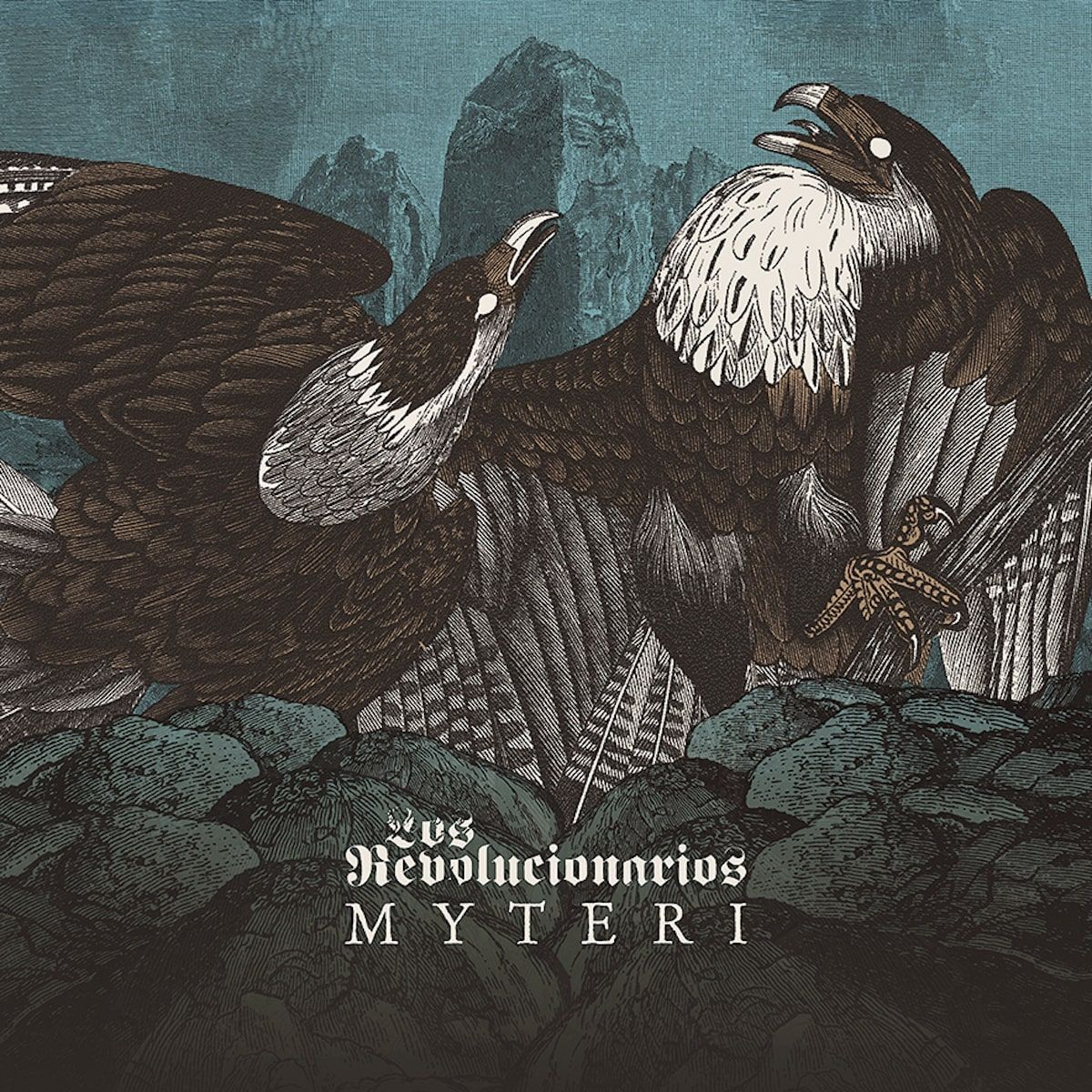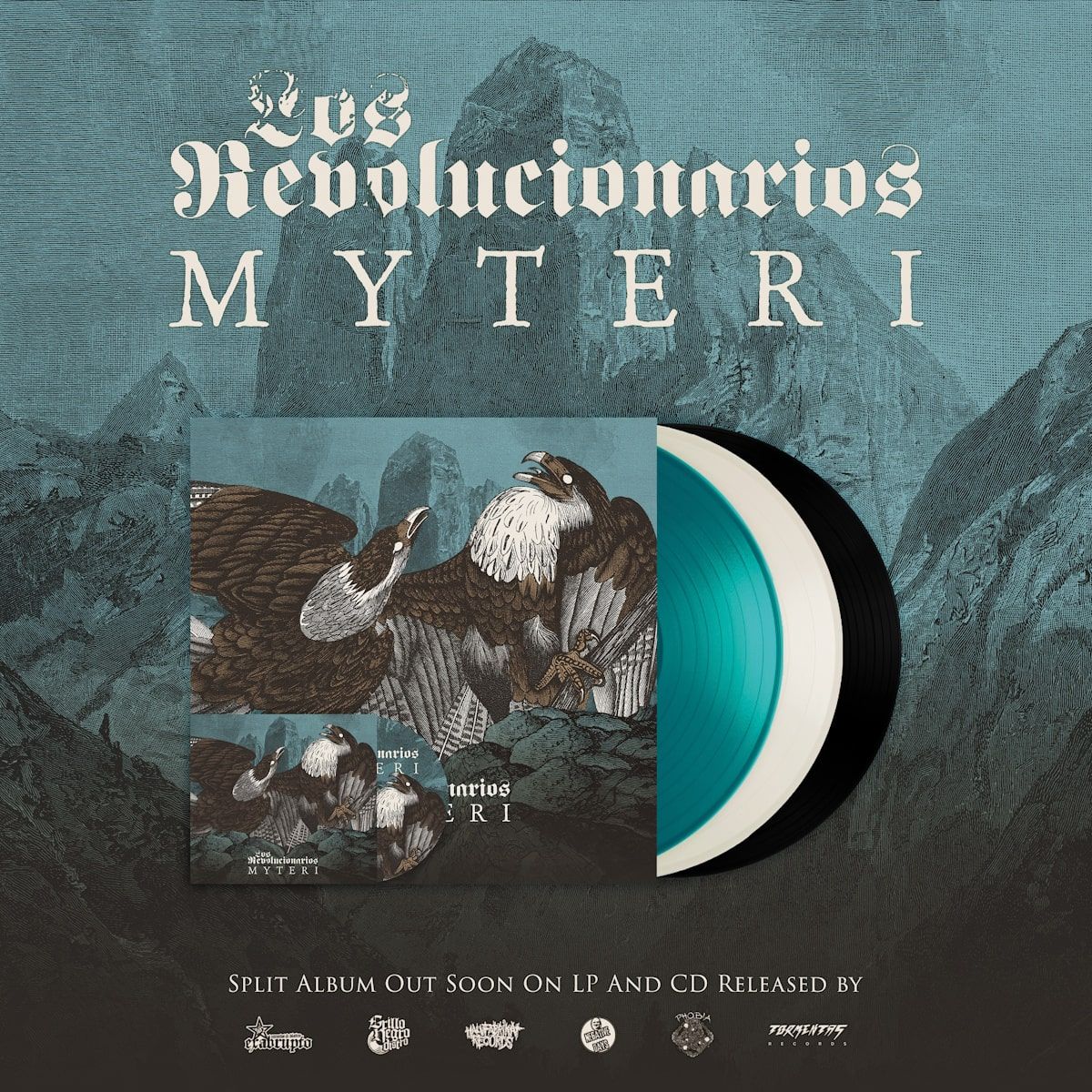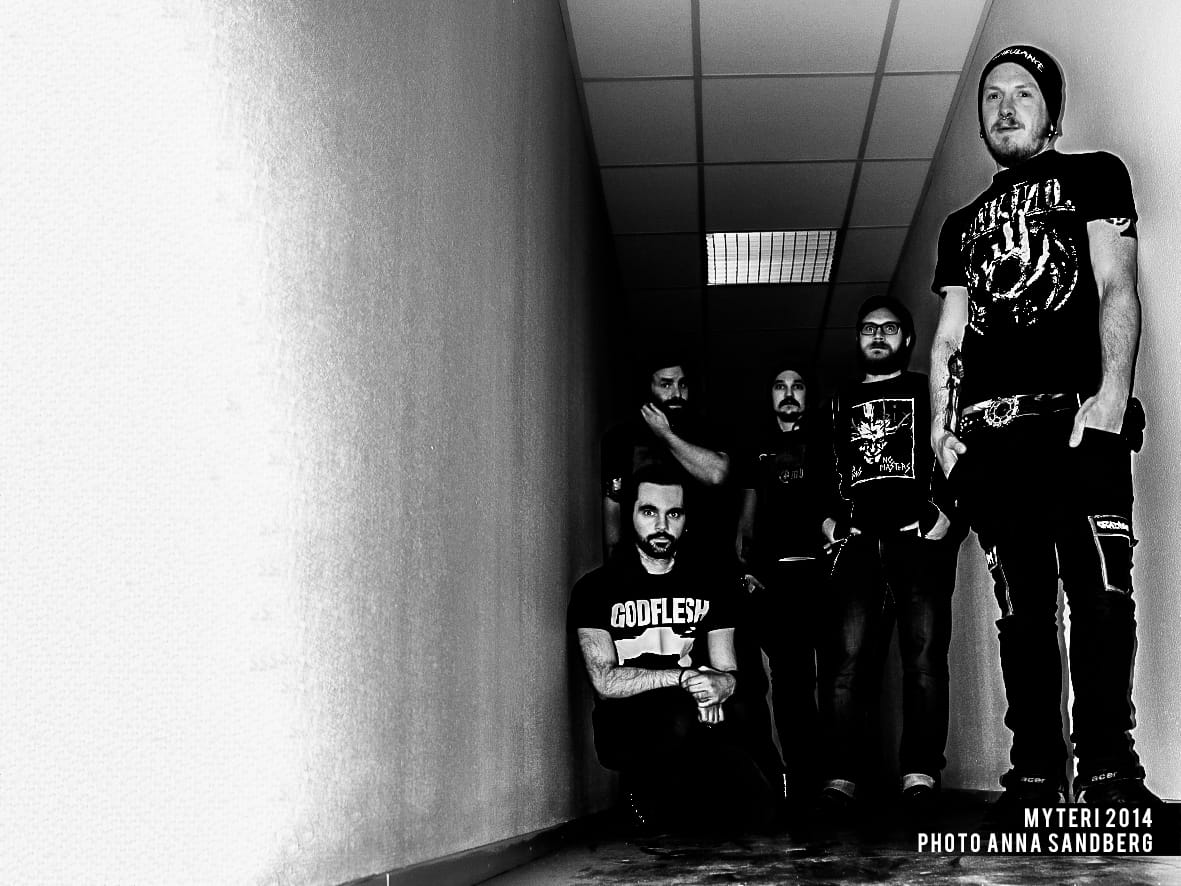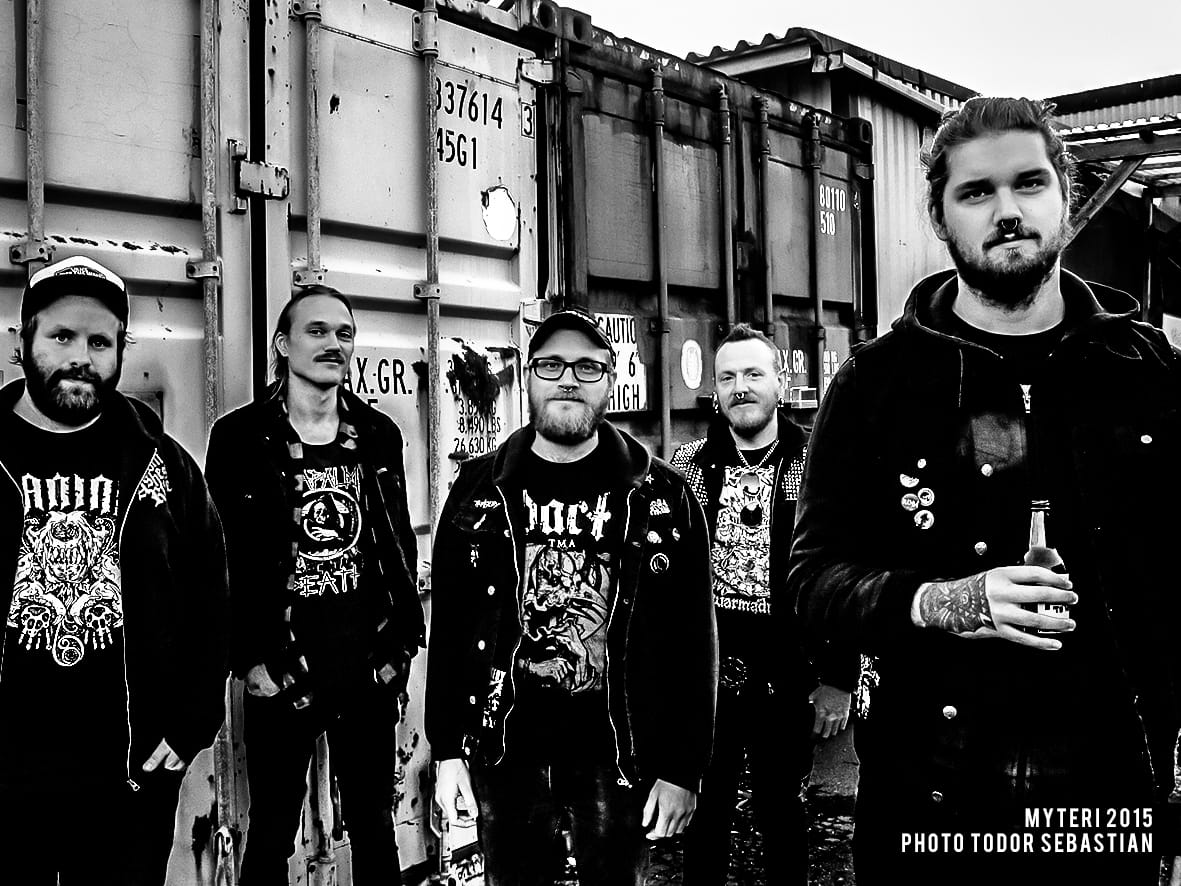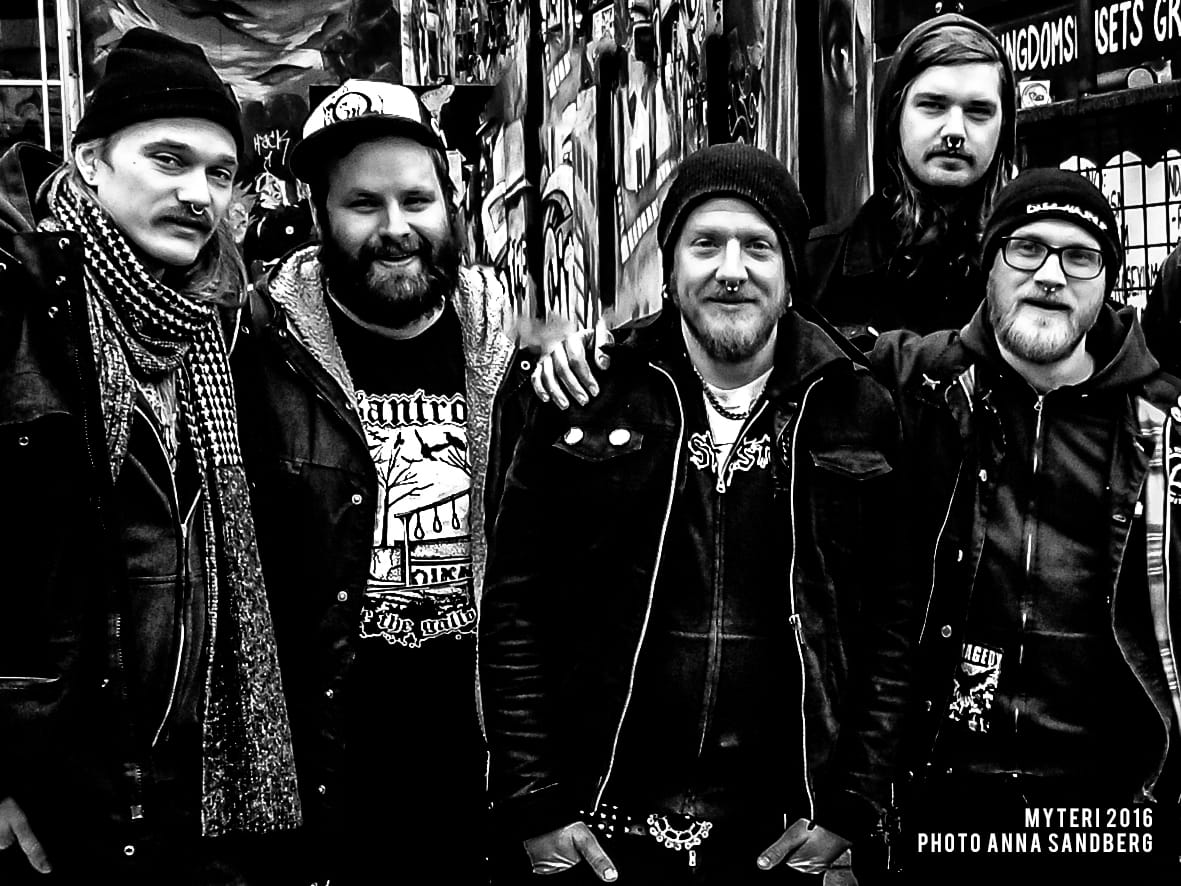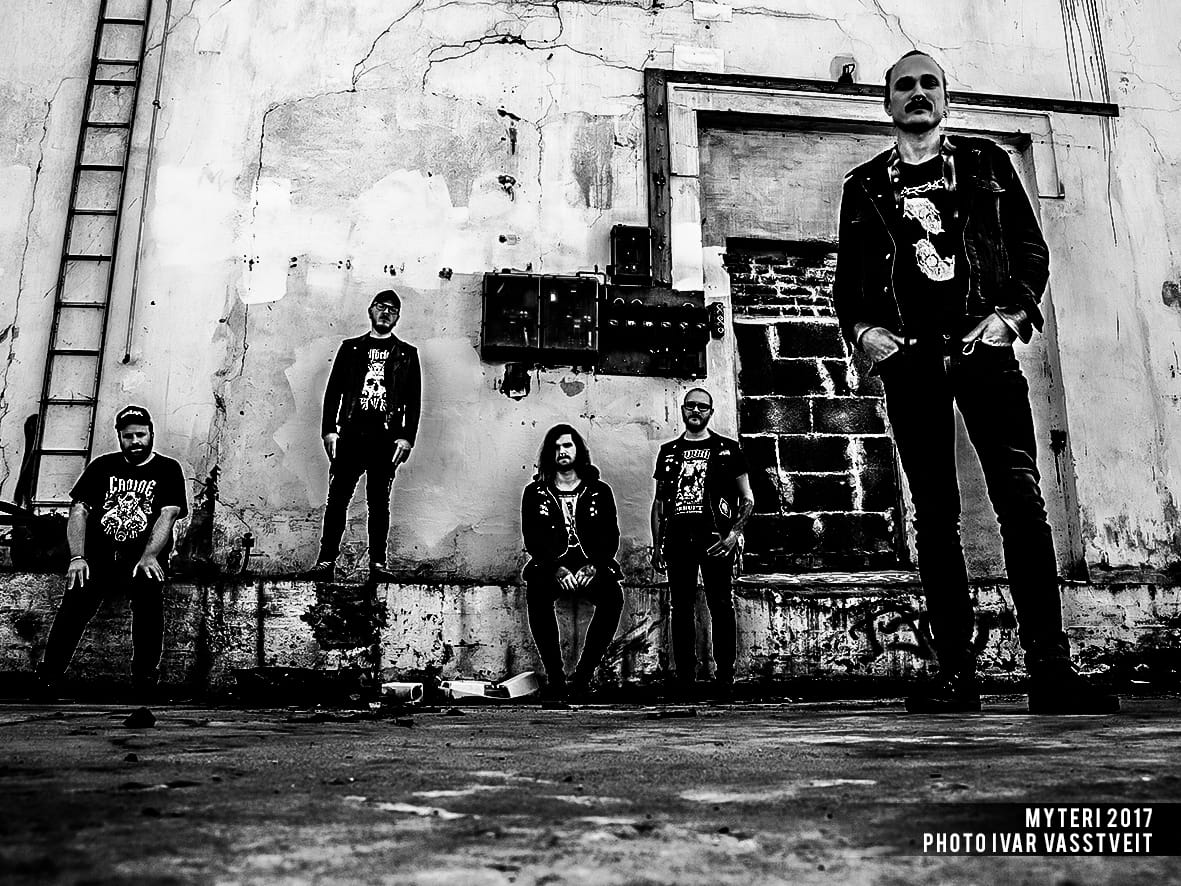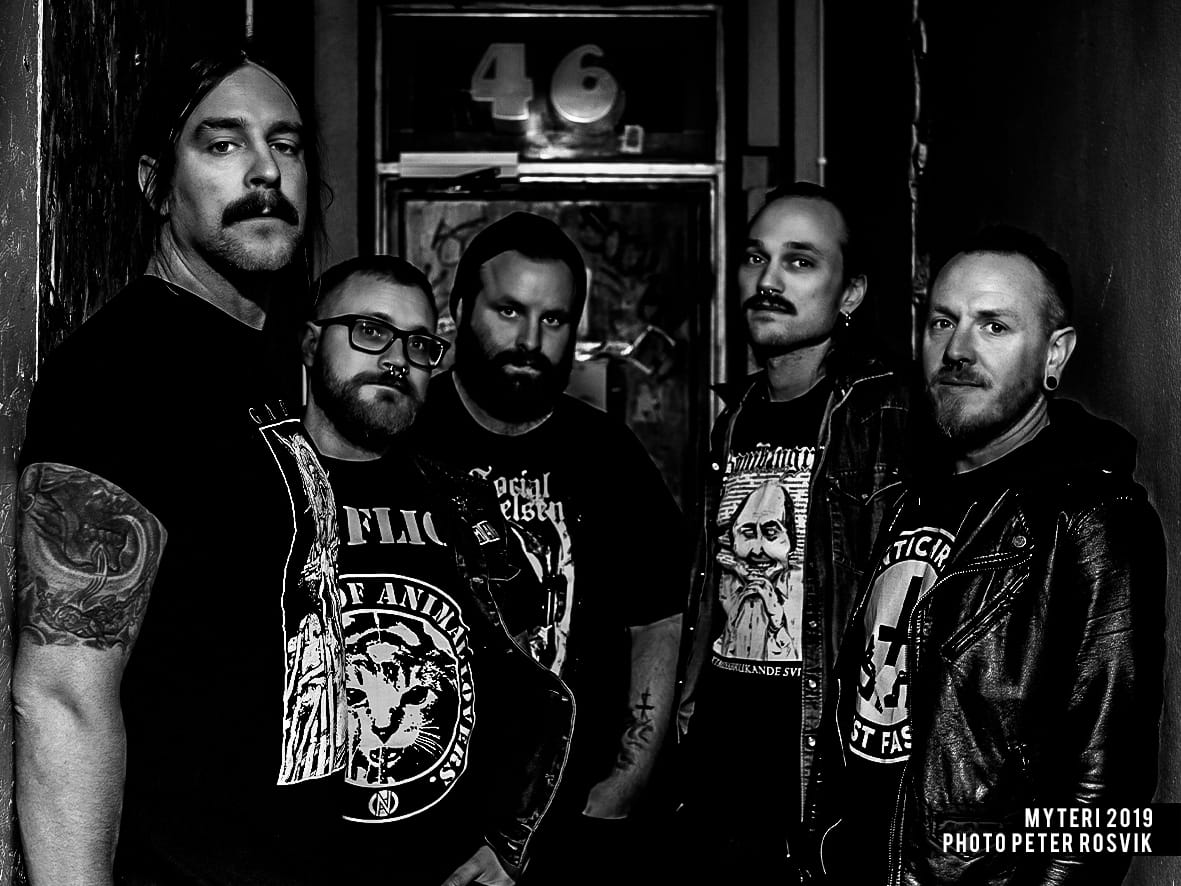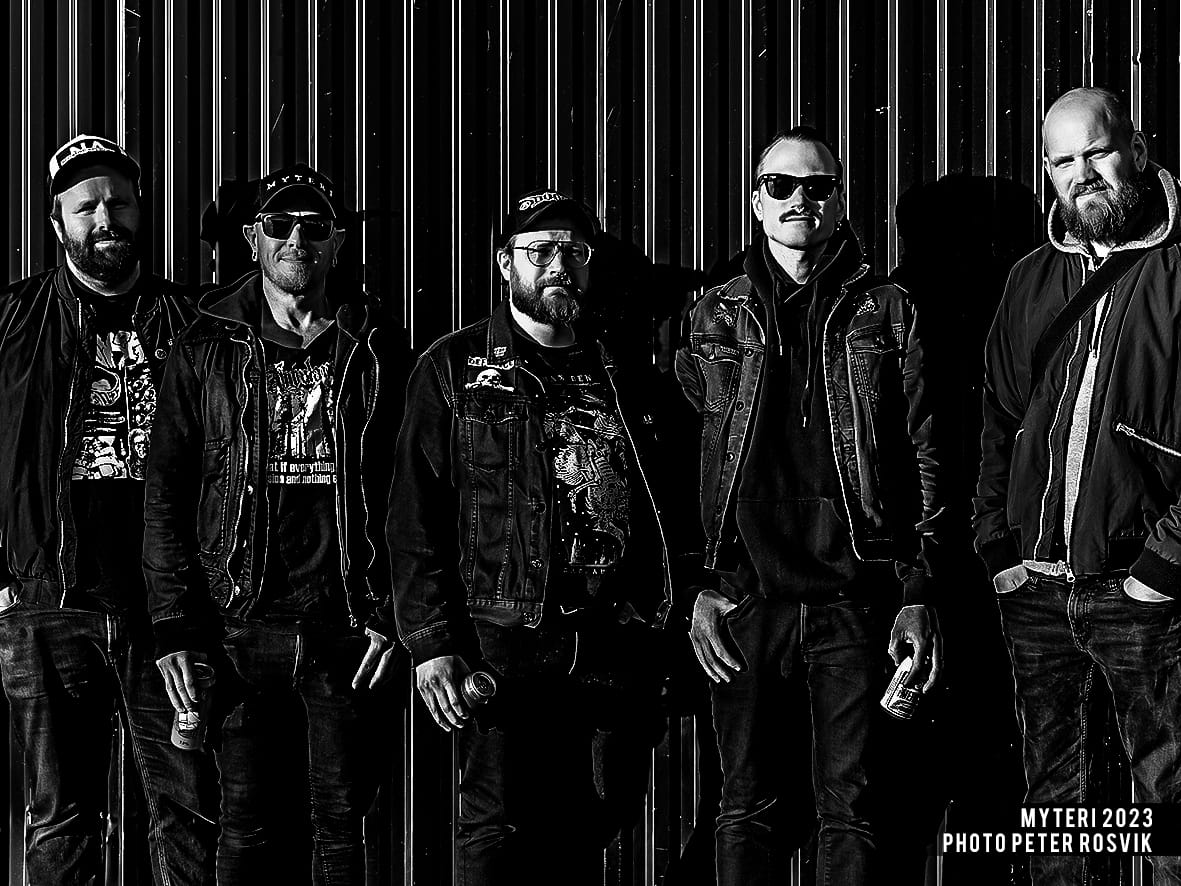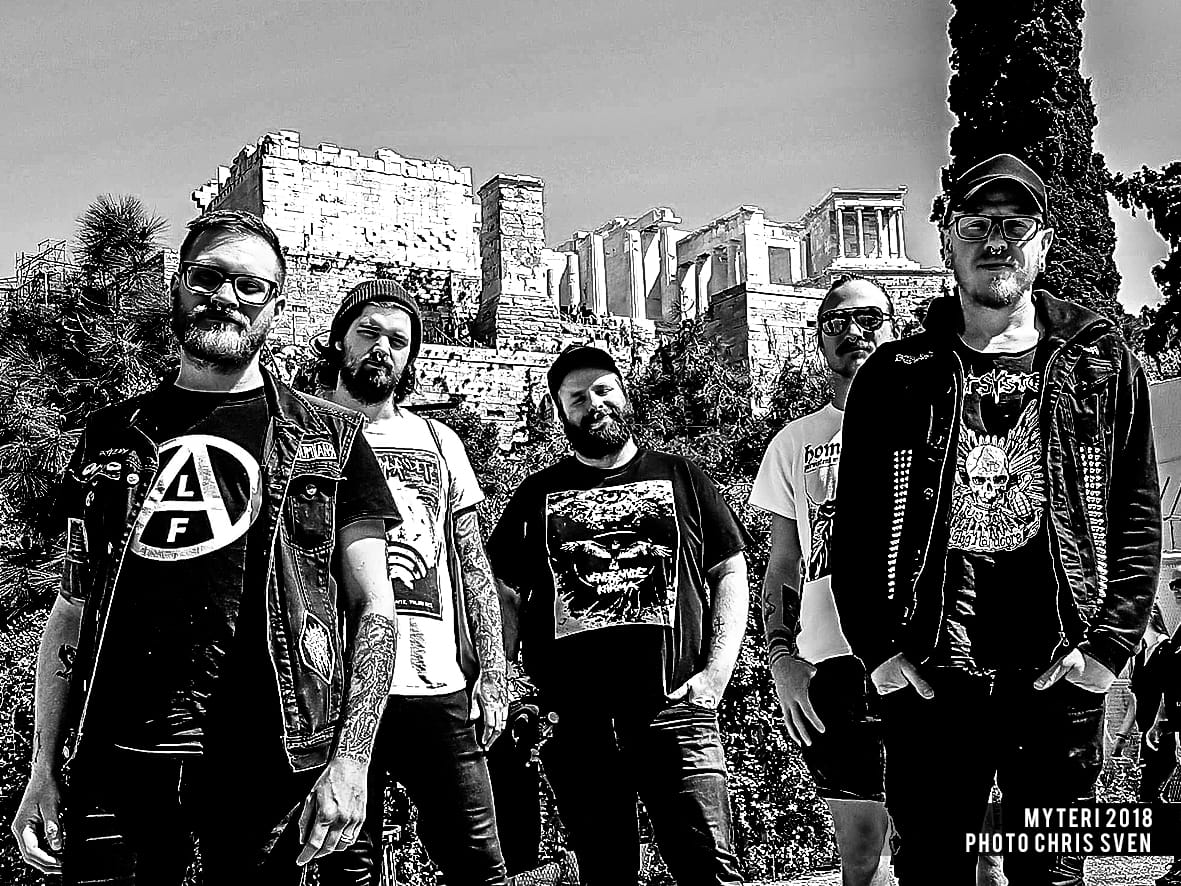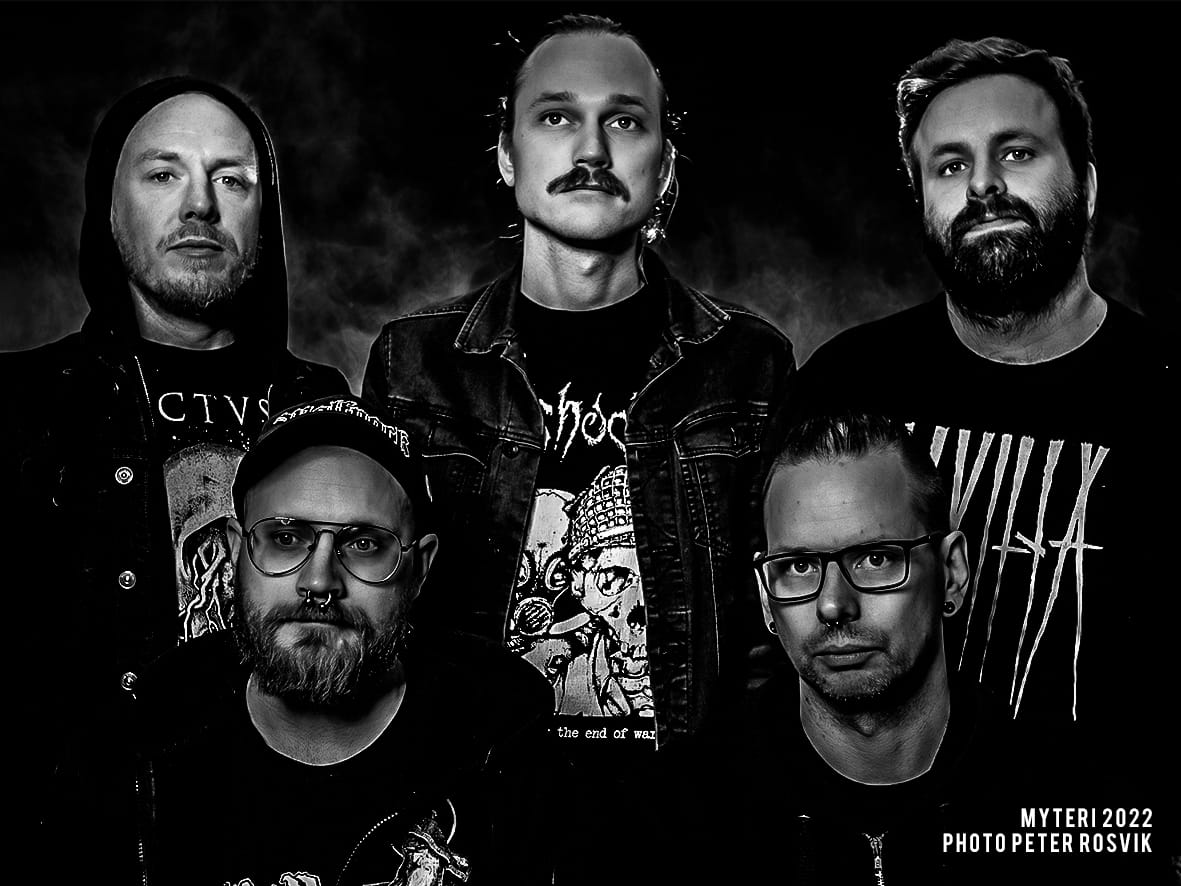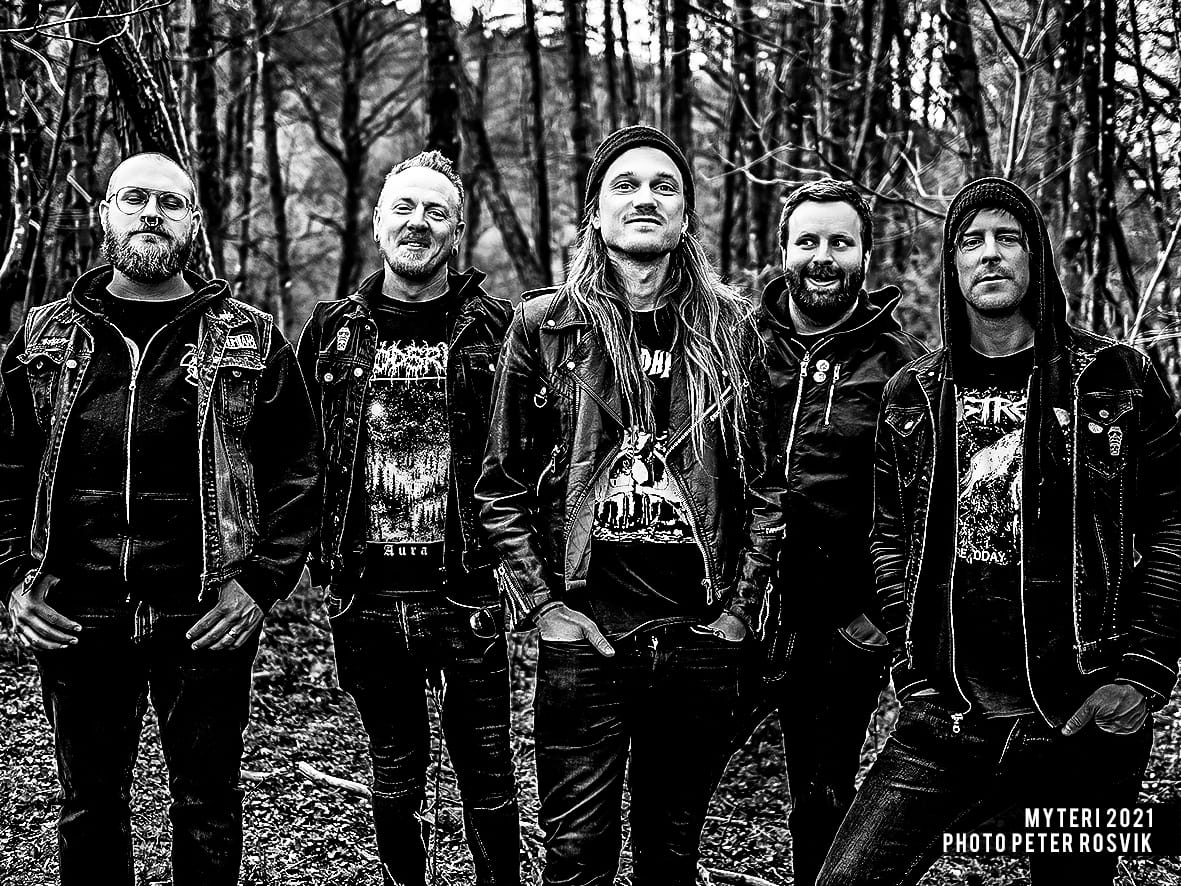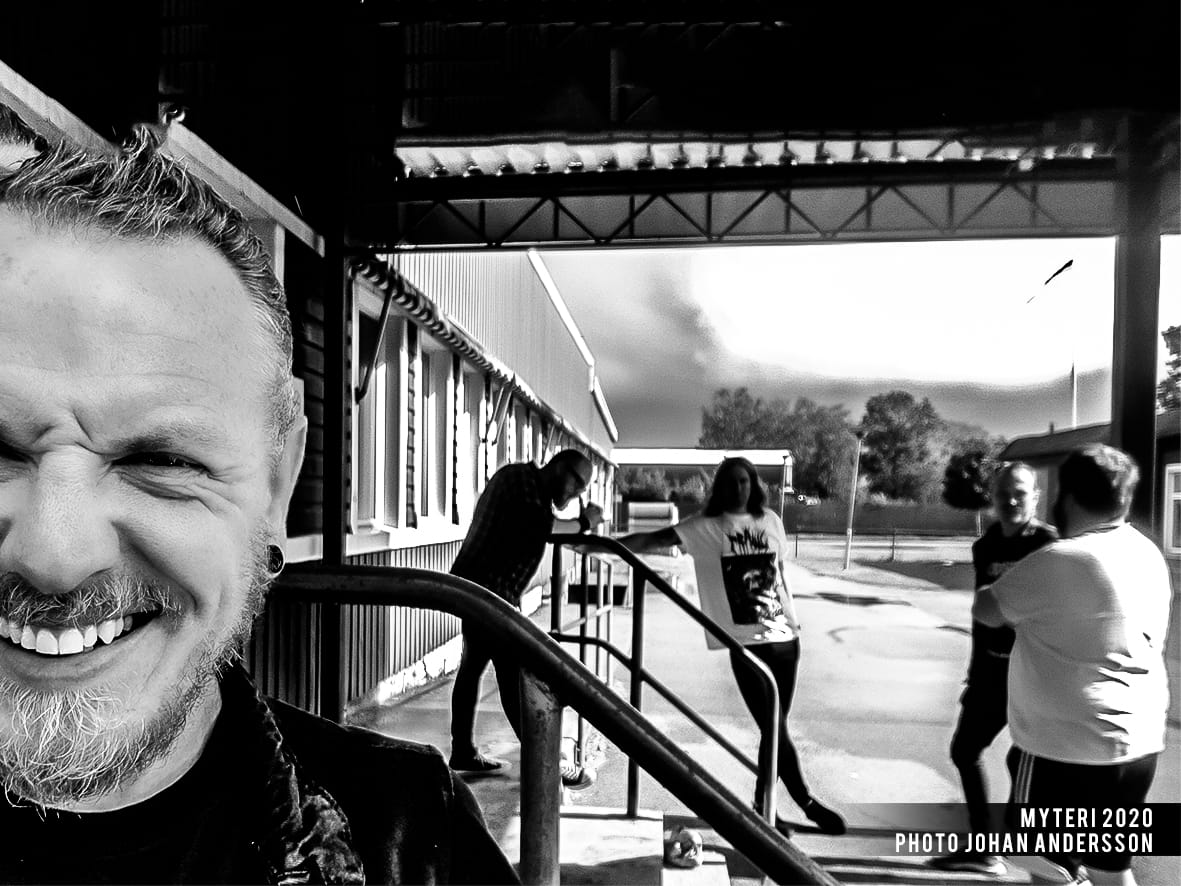If you’re looking for an emotional, heartfelt crust hardcore band from Europe, Myteri has long been considered a top candidate. Their sound is aggressive yet packed with honest passion, reflecting a group that has intrigued many since their very first releases.
Now, with the rage turned up several notches, they’re entering a new decade of activity. Below, we offer a closer look at their latest split album, changing lineup, and the meaning behind their music—before inviting you to read the full commentary track by track.
Myteri started in 2014, carving out a space in the melodic crust scene with a clear message: “We see the punk scene as our second home, and punk ideology as a guiding light in a dark age.”
After 10 years, the band is marking both a farewell and a fresh start. Their split album with Los Revolucionarios—set for release in 2025 on LP (via Exabrupto Records, Halvfabrikat Records, and Phobia Records) and on CD (via Grillo Negro Records, Halvfabrikat Records, Negative Day Records, and Tormentas Records)—is the last recording featuring the old lineup.
December 2023 brought a major shift when two original members decided to leave.
Soon after, more members stepped away. Johan Andersson and Franz Alfredsson, however, chose to press on. As Johan explains, “I didn’t want to abandon any of it. Rather, I wanted to go back to the energy and devotion that existed when we started, 10 years earlier.”
This determination led them to recruit new faces: Douglas on drums (known from Mörbultad and Sardo Numspa) and Ludde on lead guitar (also in Brute Force Trauma). Together, they plan a year of increased activity, with shows both in Sweden and abroad, plus new studio work on the horizon.
The new split showcases Myteri’s emotional crust style, delivering a blend of melodic riffs and fierce hardcore aggression.
The band hints at artwork and graphics that align with the raw energy of their songs. “It’s a perfect match of bands if you ask me.” They remain grateful for their first ten years and look confidently toward the next. Expect the same melodic power, but with fresh perspectives from the revamped lineup.
Myteri holds close ties to various fellow bands. They recommend listeners check out:
Brute Force Trauma – where Myteri’s new guitarist Ludde also plays.
Sardo Numspa – another band connected to drummer Douglas.
Mörbultad – known for raw intensity, also featuring Douglas.
Barren Futures – Franz’s new band.
Myteri first took shape in 2014, and by 2015, they were already playing shows. As Franz puts it, “We did our first gig 2015, ten years ago.”
Over the next decade, the band became a vital force for its members—both musically and personally.
Johan describes Myteri as “one of the most important cornerstones in my life,” a place where anger, sadness, and love for the punk scene could all merge into something powerful.
“Myteri has not only been music,” he says, “but primarily a refuge where dreams and visions have been allowed to thrive.”
That sense of family got shaken in December 2023, when two original members decided to quit. Before long, more people announced they were leaving.
Johan admits it was a huge blow: “For me, it was an incredible sadness to lose the family that Myteri had been for me the last 10 years.”
It wasn’t just any band lineup change—this felt like losing a safety net he’d come to rely on during turbulent times. Still, both Johan and Franz refused to ditch the name or the vision they started with ten years ago: “Going your own way and following your heart is probably among the most punk things we can do,” Johan reflects, acknowledging that even though he was “incredibly sad,” he remained grateful for everything they’d all built together.
Faced with the departure of old friends, they set out to rebuild. “Me and Johan didn’t feel like giving the whole band up,” Franz says. They began rehearsals with a new lineup last year, adding Douglas—“a very talented musician” known from Mörbultad and Sardo Numspa—behind the drums, and Ludde from Brute Force Trauma on lead guitar.
Franz is optimistic about the future: “Together with these guys I’m certain we can make great music and have many fun adventures.” Johan, too, saw it as a chance to rediscover the band’s original spark: “I wanted to go back to the energy and devotion that existed when we started, 10 years earlier.”
Even as Myteri forges ahead, they’re also wrapping up the last project recorded by the previous lineup: a split album with the Mexican crust band Los Revolucionarios. “It’s a perfect match of bands if you ask me,” Franz says.
The release is already on Bandcamp and will eventually be out on CD and vinyl. Meanwhile, new material is in the works. “In just a couple of weeks we have booked a studio for a little recording with our new lineup,” Franz continues. On top of that, they’ve scheduled a string of shows, both in Sweden and abroad, making 2025 and beyond a far more active period than the band has seen in years.
Looking back at the last decade, Johan thanks everyone who was ever part of the Myteri journey—Erik Larson, John Persson, Joe Parkes, Mattias Frödén, Ola Johansson, Niklas Nord, Erik Karlsson—calling them “family.”
“We have created a story, a life that can only be created together with others,” he says. Now, he’s focused on “writing the next chapter of the story of how music can make us stand up and stand united in a dark time.”
And for Myteri, that story is still unfolding: “We look forward to experiencing the continued story together with new friends, who can become a family with a common dream.”
And here´s ‘a bit’ about all the songs on the split album with Los Revolucionarios.
Words by Johan.
“Ondskans Rötter”
(Roots of evil)
I wrote the base for this song on acoustic guitar back in 1999. During my late teens, the song went under the title “Grå vardag”. During this time I had no band where this song fitted, and the song fell more or less into oblivion.
View this post on Instagram
But it happens sometimes that I think of the melody in the intro, so at some point in 2022 I felt like I wanted to try recording it in my home studio. The song gradually grew in my ears and I presented it to the members of Myteri in the hope that they wouldn’t hear that it wasn’t originally written as a Myteri song at all. Apparently I succeeded because the song made it into the rehearsal room and the only change that was made was when Niklas wanted to make an arrangement change to the part I placed after the chorus. Which resulted in a bridge being added. Otherwise the song has its origins 25 years back in time.
When, in my work as a student assistant, I underwent further training on the subject of honor oppression, we saw the film “Desert Flower”. I’m always looking for topics that don’t feel watered down and that can inspire and give different angles to texts. The punk scene is no exception to being extremely male-dominated as a subculture within the left wing, especially from a global perspective. This may be the reason why women’s vulnerability in specific issues is highlighted too rarely. Especially questions that are critical of cultures and traditions outside our own immediate vicinity.
I remember that it was Erik Larson who said he got a bad feeling in his bones when he read the text. For me, it is always proof that the text touches and that it evokes exactly the feeling that is my intention when I write lyrics for Myteri. Within the left-wing music scene, the topic of female genital mutilation is something where there is still a culture of silence.
We all need to shed light on the existence, break the culture of silence and create an awareness of the existence of what atrocities that FGM is. So that abuse of this kind cannot continue in the darkness of denial.
Traditions that are never questioned are the “Ondskans Rötter”.
“Pestens Tid”
(Times of plague)
During the time Niklas and I played together with Björn, Niklas presented many songs. In my opinion, this was the strongest material. After Niklas joined Myteri and we buried the idea of trying to keep our side project alive, it felt obvious that the music for this song would be used in Myteri.
View this post on Instagram
I got through with my suggestion to remove my backing guitar during the verses to enhance the dynamics of the song even more. After a full day in the rehearsal room, we went to my house and arranged the outro part together, which in my ears was the last piece of the puzzle to create one of our most dynamic songs ever.
I had written lyrics in the meantime as the details of the song fell into place. We were in the middle of a pandemic, but also at a time when, all over Europe, fascist plots were being made in the corridors of power, both from right to left in a systematic and studied manner. Racial ideology had not been so normalized since the Second World War and it spread like a contagion across all social classes.
The text highlights precisely how we are infected by our society and surroundings, where fear and xenophobia are the heaviest weapons for the virus to spread like wildfire.
If we open our eyes, we can see that right-wing radical views have an iron grip on us even in the future, to wake up we must realize that we live in the times of Plague -”Pestens Tid”.
“Sekt”
(Sect)
I was about 15 years old when I was able to play a melody on a guitar for the first time. I listened almost exclusively to what we in Sweden call “trallpunk”. The intro and verse melody was written during this time. Even though it was a very long time ago that I wrote the melody, I have many times played that particular melody when I was sitting with a guitar. The melody never left my muscle memory but I didn’t remember the rest of the song at all. The text was completely different and had the title “Ragnarök”.
View this post on Instagram
When I started writing music after the recording of “IIIusion”, I felt it was time to create a song with my old melody from the boy’s room. We stole the intro arrangement straight from Los Revolucionarios’ song “Born”. I wanted the song as a whole to feel like it was written when I wrote the Intro Melody. Therefore, the song is completely without guitar parts, which is otherwise the way I write music these days.
When I was about to write the lyrics, I remember that the only thing I had in mind was that I wanted it to be a monosyllabic word that was shouted at the beginning of the song’s chorus. “Sekt” was a word I stuck with, but I also realized that I had no direct knowledge of what distinguishes cults. I listened and watched many documentaries about cults to gain a better insight into what it is that attracts so many people to join a cult.
Unfortunately, in retrospect, I think that the text does not reach the level I want the texts to maintain, that I chose to write with 3 rhyming words/consonances made the process of getting a perfectly cast final result difficult. At the same time, I think that the text as a whole captures the core of the subject, that what is supposed to be a strong community, is also based on a strong hierarchical power system that tears apart families within a “Sekt”.
“I Krigets Inferno”
(In the inferno of war)
Between the years 2008-2012, I played in the band Eskatologia. During most of these years, Erik Larson was also in the band. “Empty eyes” was a song that Eskatologia’s guitarist Marcus wrote. As I remember it, the song always had a given place in our setlist when we played live.
View this post on Instagram
Over the years I’ve tried to capture the feeling of that song to create a song that I hoped could serve the same function in a new setlist. It took me over 10 years to realize that I would never succeed. But after all those years, it finally became a song in any way.
I think the end result has a lot of powerful arrangements and even though the lyrics feel like fairly traditional anti-war lyrics, I really think this song has a given place among the other songs recorded during this studio session.
The title was originally “I Krigets Brinnande Inferno”, but both the text and the title were eventually shortened to “I Krigets Inferno”.
“Psykisk Terror”
(Psychic terror)
Around 2017, Niklas and I started playing together with Björn. We never managed to recruit a fourth member and lived too far apart to manage keeping the project going.
The loop that forms the intro and the chorus of this song was presented by Niklas then, and it immediately stuck in my head. Unfortunately, I never felt that the riff in the rest of the song reached anywhere near that level, but in my mind I often returned to the intro melody. I had the idea that I should try to write a song with that loop as a basis, but I never got there until Niklas, who had just joined Myteri, one day sent me a sound track where the loop was played in a context that I thought felt completely obvious.
View this post on Instagram
I had a hard time taking his text about men measuring their dicks seriously, even though I understood what he wanted to say. At the same time, it didn’t feel like a formulation I could stand behind. The music never had a finished text before Niklas left Myteri.
I asked Niklas if we could use the music and if it would feel ok for him if I wrote a text for the song. Niklas felt that it was a Myteri song and that was where it belonged, so he was perfectly fine with me writing a text.
I had a text that I wrote during a time when where the issue of sole custody was highly topical. During that time, I spent many hours looking for answers to questions on the subject on various forums and pages on the Internet. The picture painted was largely uniform. Absentee fathers who do not want to lose custody of their children, or perhaps rather control over the children’s mother.
When I witnessed up close how the system was designed in this matter, the frustration and anger grew within me. The picture was so clear, the guidelines in these cases are so thin, that they allow the absent parent, time and time again, to step over them without any consequences whatsoever for them. The only ones affected and punished are the mothers present and, by extension, the children. The parent who is responsible for the children is always tied back by a system that protects the absent father who can conduct “Psykisk Terror” undisturbed.
“Age of disinformation”
The first time Franz played this song for the rest of us in Myteri, we were at John’s house barbecuing seitan. I remember thinking that it had been a long time since Franz had played anything he had written. It felt good to know that he wanted to be active in writing music for Myteri, considering that I wrote the basis for the whole album “IIIusion”.
View this post on Instagram
I really felt that it was a Myteri song we were listening to. At the same time, it is always the case that I listen for things that I want to change. It’s the same when I work on a song myself. The song rarely feels ready until I’ve run the riff upwards of 10 times through my home studio. So it turned out that way this time too, but I actually don’t think that in the end any of my ideas made it into the final result. Except possibly how I wanted the rhythm guitar to be played.
Periodically I think it’s a great song even if it doesn’t have the same “square shape”as how I write songs, which I know can be a disadvantage to our music a lot of times.
But Niklas also had many ideas for the song, many of which made up the final result of the song, even if the basic feeling was there from the recording Franz presented.
John, took on the responsibility of writing lyrics for the music and when I read the lyrics I remember liking that it was written in rhyme. It also took up a topic that feels current and which had not yet been watered down within the punk scene. As I remember it, the text was set without any changes being made. In a time where the media flow flows forward in a wild stream via the internet, we need to view the “Age of disinformation” with critical eyes.
“Folkhemsruiner”
(people´s homes ruins)
First, a short explanation of the phrase “folkhem”.
“In Sweden, the concept of people’s home (folkhem) has come to be associated with Sweden’s Socialist Democratic Workers’ Party and Per Albin Hansson (Swedish PM 1936-1946), who launched it as a concept on January 18, 1928 meaning a society that is a home for the whole people, and characterized by consensus and equality.”
View this post on Instagram
Taken from Wikipedia because it´s easy, correct and I´m tired now. Now, on to Johans text on the tune:
When Franz for the first time shared a recording that didn’t feel like a traditional Myteri song at all, I was a little doubting at first, while I really liked what I heard. I thought after a while that he must have stolen the music from some old Swedish folk tune. But at the same time I thought it was so good that I didn’t dwell on that thought any longer.
I was convinced that the music would do best as an instrumental track on a record. Preferably with instruments that wouldn’t be played with our traditional set of instruments, just like the outro on “IIIusion” was done.
We first decided to save the melody for a future recording. We had already managed to convince Los Revolucionarios to increase the number of tracks on each side of the vinyl, from 5 to 6 songs. However, once Los Revolucionarios sent us their recording, we noticed that they had recorded an extra track as an outro on their side of the vinyl.
Now my idea of an outro track also on Myteri’s side gained air under its wings. Because in my head there would otherwise be an imbalance, like I felt was on the split EP with Procrastinate.
Based on the fact that there are quite a lot of elements of Swedish folk music also in the other songs on our recording, it felt very natural that it was precisely this piece that would form our outro track on the album.
I contacted my friend Andreas who also plays with the folk punk band “Kampen” and asked if he wanted to record the melody with accordion, which he gladly did. Franz then recorded a distorted bass and a sample track that made me think of the Swedish countryside a 100 years ago. From the time when the foundations of the Swedish people’s homes were built, which in the last decade have been gradually laid in ruins. The title became ‘Folkhemsruiner’.



